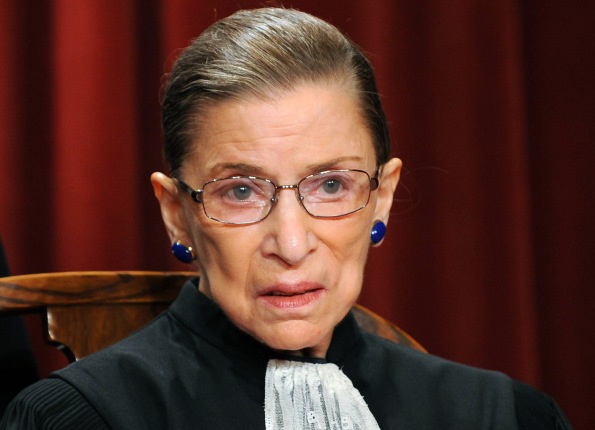5 reasons why US economy is recovering
July 5, 2014Big in Brazil
July 6, 2014

SO MUCH for the Supreme Court’s summer recess. Not 72 hours after they wrapped things up for the year, the justices had an emergency application to contend with. The plea came from Wheaton College, a Christian institution in Illinois. As a religious non-profit, Wheaton is one of the organisations with objections to paying for their employees’ contraceptives the Obama administration tried to accommodate a year ago with this compromise: fill out a form self-certifying to your objection, and you do not have to pay for the birth control. The third-party insurance company will provide the birth control at no cost. Wheaton, like dozens of other evangelical organisations, finds this alternative arrangement unacceptable because filling out the form “triggers” the delivery of contraceptives.
Yesterday, by a vote of 6-3, the justices gave Wheaton a temporary exemption from the accommodation. It need not fill out the form, pending resolution of its legal claim in court.
The amazing irony in the Court’s order was seized on by the three female justices in a 15-page dissent written by Justice Sonia Sotomayor. The Hobby Lobby decision on June 30th hinged on the contention that the contraceptive mandate was not the least restrictive way to provide free birth control to women. What’s the better, less burdensome solution, according to Justice Samuel Alito? The very accommodation Justice Alito now says might be illegal!
Even Kafka would find this turn of events puzzling. Justice Sotomayor was right to lament that the Court’s order “undermines confidence in this institution.” How can an alternative accommodation explicitly endorsed by the Supreme Court on Monday suddenly lose its presumptive legality on Thursday? And how can a ruling self-styled as narrow and modest, applying only to closely-held corporations, expand to embrace pleas from religious non-profits to be exempt from exemptions?
Some observers are blaming Justice Ruth Bader Ginsburg for accentuating the negative. By writing in her Hobby Lobby dissent that the decision is one of “startling breadth,” she may have made it easier for religious employers to harangue courts for exemptions from federal law. For Kenneth Jost, “Ginsburg might have served her own views better by stressing in dissent not how far the decision might go, but how narrowly lower courts ought to read it.”
Mr Jost notes that Justice Ginsburg’s approach in her dissent is reminiscent of that of Justice Scalia in two recent gay-rights cases. In Lawrence v Texas of 2003, which overturned laws criminalising sodomy, Justice Scalia had warned that the majority’s “reasoning leaves on pretty shaky grounds state laws limiting marriage to opposite-sex couples.” And in last year’s Windsor v US, he wrote that it is “inevitable” that viewing the Defence of Marriage Act as “motivated by ‘bare…desire to harm’” same-sex couples will lead the Court “to reach the same conclusion with regard to state laws denying same-sex couples marital status.” Eric Segall, a law professor at Georgia State University, notes that since the Windsor ruling came down, “judges striking down same-sex marriage bans gleefully cite Scalia in doing so. Rather than stemming a flood of rulings in favor of same-sex marriage, Scalia’s dissent helped blow up the dam.”
This worry is misplaced. Lower-court judges do not need strident dissents to issue rulings based on the breadth of Supreme Court decisions that are broad. Justice Scalia was right to criticise Justice Kennedy back in 2003 for his ham-handed attempt to differentiate laws against sodomy from laws limiting marriage to opposite-sex couples. Since the ruling was based on the principle of “the autonomy of the person in making [intimate] choices,” it would be crass to assume this autonomy is limited to what transpires between the sheets. And Justice Scalia was right again in 2013 to wonder why a ruling based broadly on egalitarian grounds would apply only to federal laws, not state bans on same-sex marriage.
Ruth Bader Ginsburg would have been ducking her duty as a Supreme Court justice had she held her tongue and painted the quite obviously broad ruling in Hobby Lobby as an insignificant trifle that has no bearing on future employers’ requests for religious exemptions. The fact is, Justice Scalia was right then and Justice Ginsburg is right now. Attempts to artificially cabin opinions that are based on broad principles are bound to fail. They will, despite protestations, invite future litigation under the broader principle. There is no clear limiting principle on the idea that corporations are religion-bearing entities whose beliefs cannot be infringed under all but the most grave circumstances. That opens a door, whether Justice Ginsburg points it out or not. It would have been no liberal victory to pile a disingenuous dissent onto a disingenuous majority opinion.
Dig deeper:
The Roberts court quietly paves the way for big changes
The Supreme Court sides with religious firms against Obamacare
(Photo credit: TIM SLOAN / AFP)

